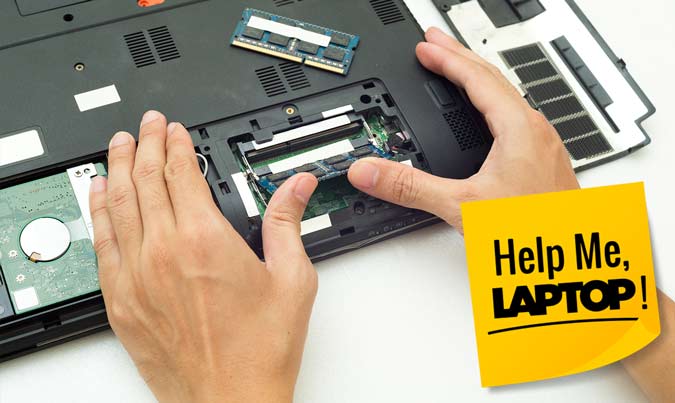Help Me, LAPTOP: Should I Upgrade or Buy a New Notebook?
Sign up to receive The Snapshot, a free special dispatch from Laptop Mag, in your inbox.
You are now subscribed
Your newsletter sign-up was successful
When your old laptop is just too slow to keep up with the new software and tasks you're throwing at it, you have two choices: buy a brand new laptop with faster components or try to upgrade your existing system. Forum user _satwik has exactly this dilemma. They own a three year-old Lenovo Z50-70 with an Intel Core i5 4th Gen CPU, 8GB of RAM, a 1TB hard drive and a 2GB Nvidia GeForce 840M GPU and want to know if they can save money and get a noticeable performance boost by adding more RAM and switching to an SSD.
When deciding whether to upgrade or replace your laptop, consider the following questions:
1. Is my laptop upgradeable?
Many notebooks today are completely sealed with parts that may be soldered onto the motherboard. Also, even if your laptop offers easy access to its innards, the only components you can replace are typically the RAM and storage drive; forget about changing your CPU, graphics card or screen.
To find out whether your laptop is upgradeable and what type of RAM or SSD it might take, you can check the service manual from your manufacturer or visit Crucial's Advisor tool. The tool tells you not only what type of components you need, but also the maximum amount of RAM your system can accept.
2. Will an upgrade improve my performance enough?
If your computer is really old and slow or the new tasks you wish to execute require a lot more processing power than you have, an upgrade won't help you. So, if you need to play games or transcode videos or edit high-res photos and can't, only buying a new laptop will help you.
Sign up to receive The Snapshot, a free special dispatch from Laptop Mag, in your inbox.
The most meaningful upgrade you can make is switching from a hard drive to a Solid State Drive (SSD). Because SSDs have no moving parts, they are able to load programs, copy files or switch tasks many times faster than hard drives, which use spinning magnetic platters that look a lot like old-fashioned record players.
MORE: Which Laptop CPU is Right for You?
In modern operating systems such as Windows or macOS, your storage drive runs a lot, not just when you open files or apps, but when you switch tasks and the notebook writes to its virtual memory paging file and to various other disk caches. An SSD will make your computer much more responsive. Upgrading your RAM to 8GB will cause your system to rely a bit less on its paging file so that will also help.
3. What's your budget?
If you want significantly more performance than your old laptop provides, you need to get a new one with at least these specs:
- Intel Core i5 processor
- 8GB of RAM
- 256GB SSD
- An Nvidia GTX 1050 or higher for gaming
You can find a budget laptop with the first three of these specs for under $600 (ex: Acer Aspire E 15 E5-575-57D4), though more lightweight and premium designs (ex: Dell XPS 13) cost $1,000+.
The minimum gaming system will be over $800. Dell's Inspiron 15 7000, with a Core i5, 8GB, an SSD and Nvidia GTX 1050 graphics goes for $849.
For upgrading, you can get a 256GB SSD for $99 or less and 4 or 8GB of RAM for $30 to $60. So the difference in cost between upgrading and buying a new laptop is $400 or more.
Bottom Line
_satwik is looking to do some machine learning development work and "playing around with GBs of data," but is not interested in serious gaming. The Lenovo Z50-70 and its Core i5 CPU with 8GB of RAM really isn't that old or slow and it is upgradeable. According to the Crucial Advisor Tool, the Z50-70 takes a standard, 2.5-inch SATA drive, which is the most common type. For those reasons, I recommend that _satwik try upgrading to an SSD, rather than purchasing a new system.
Credit: Shutterstock


